Related Research Articles

Dora d'Istria, pen-name of duchess Helena Koltsova-Massalskaya, born Elena Ghica (Gjika/Xhika), was a Romanian and Albanian Romantic writer and feminist, most notable for having emblematized the Albanian national cause of the 19th century.

Elena A. Bacaloglu, also known as Bakaloglu, Bacaloglu-Densusianu, Bacaloglu-Densușeanu etc., was a Romanian journalist, literary critic, novelist and fascist militant. Her career in letters produced an introduction to the work of Maurice Maeterlinck (1903), several other critical essays, and two novels. She married and divorced writer Radu D. Rosetti, then Ovid Densusianu, the Symbolist poet and literary theorist.

Elena Leușteanu-Popescu was a Romanian artistic gymnast who competed at the 1956, 1960 and 1964 Olympics. During her career she won three Olympic bronze medals, one world bronze medal and five continental silver medals. She was the first Romanian artistic gymnast to win an individual Olympic medal.

Elena Ceaușescu was a Romanian communist politician who was the wife of Nicolae Ceaușescu, General Secretary of the Romanian Communist Party and leader of the Socialist Republic of Romania. She was also the Deputy Prime Minister of Romania.
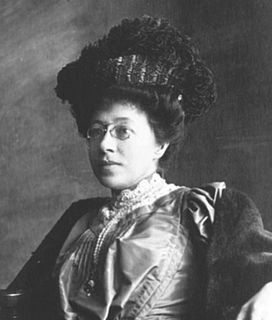
Mărgărita Miller-Verghy was a Romanian socialite and author, also known as a schoolteacher, journalist, critic and translator. A cultural animator, she hosted a literary club of Germanophile tendencies during the early part of World War I, and was later involved with Adela Xenopol in setting up feminist cultural venues. Her main contributions to Romanian literature include translations from English literature, a history of feminine writing in the national context, a novella series and an influential work of detective fiction. Many of her other works have been described as mediocre and didactic.
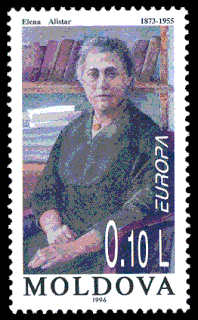
Elena Alistar-Romanescu was a Bessarabian physician and politician who was part of Sfatul Țării from Bessarabia.
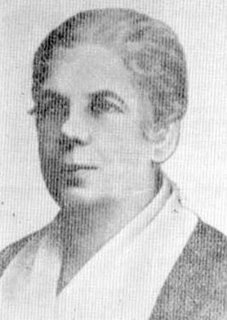
Izabela Sadoveanu-Evan was a Romanian literary critic, educationist, opinion journalist, poet and feminist militant. She spent her youth advocating socialism, and rallied with left-wing politics for the remainder of her life, primarily as a representative of Poporanist circles and personal friend of culture critic Garabet Ibrăileanu. Under Ibrăileanu's guidance, Sadoveanu wrote for Viața Românească review, where she tried to reconcile ethnic nationalism and traditionalism with aestheticism. As literary critic, she championed the recognition of Symbolism as an independent cultural phenomenon, and reviewed modern developments in English literature.
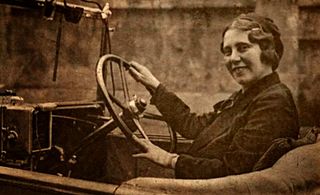
Elena Meissner also called Elena Buznea-Meissner, was a Romanian feminist and suffragist. She was the co-founder of the Romanian women's movement organisation Asociația de Emancipare Civilă și Politică a Femeii Române (1918) and its president in 1919.

Maria Cuțarida-Crătunescu was the first female doctor in Romania. An active feminist supporter, she founded the Maternal Society in 1897, and in 1899 organised the first crèche in Romania.

Maria Baiulescu was a Romanian author, suffragist, women’s rights activist, Romanian nationalist, and feminist leader.

Calypso Botez (1880–1933), was a Romanian writer, suffragist and women's rights activist.
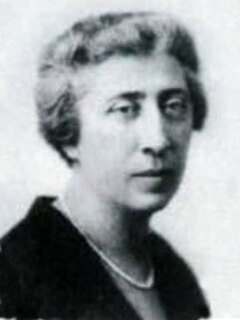
Ella Negruzzi (1876–1948) was a Romanian lawyer and women's rights activist, and the first female lawyer in Romania (1913). She was a co-founder of the women's organization Association for the Civil and Political Emancipation of Romanian Women (1917), the Group of Democratic Lawyers (1935) and the Women's Front (1936).
Elena Pop-Hossu-Longin was an Austro-Hungarian-born Romanian writer, journalist, socialist, suffragist and women's rights activist.

Avra Theodoropoulou was a Greek music teacher, pianist, suffragist and women's rights activist. She founded the League for Women's Rights in 1920 and served as its chairperson from 1920 to 1957. She was married to the poet Agis Theros.

Maria Svolou was a Greek feminist and socialist leader.

Eugenia de Reuss Ianculescu was a Romanian teacher, writer, and women's rights activist. She was one of the founders of the Women's League, the first feminist organization in Romania, and later was the founder of the League for Romanian Women's Rights and Duties. Fighting for women's suffrage for fifty years, she wrote novels, delivered lectures, cultivated support of politicians and presented legislative petitions, earning in the year of her death, the right for Romanian women to participate in general elections.

Berta Pīpiņa was a Latvian teacher, journalist, politician and women's rights activist. She was the first woman elected to serve in the Latvian parliament. Active in women's rights, during her time in the Riga City Council and the Saeima, she strove to enact laws and policies to promote women's equality and protect families. When Soviet troops occupied Latvia, she was deported to Siberia, her life was removed from encyclopedias, and she died in a gulag.

Adela Xenopol (1861–1939) was a Romanian feminist and writer. She published both literary works and feminist tracts, founding several magazines. In 1914, just prior to the advent of World War I she and other feminists presented a petition for women's suffrage to the Romanian Parliament. In 1925, she founded the Society of Romanian Women Writers to encourage women to publish their works and the following year founded an influential journal as the publishing arm of the society which published works by both women and men on feminist topics.
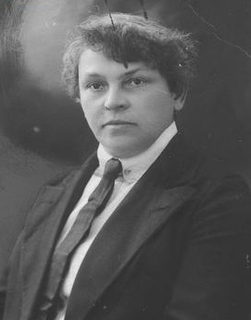
Justyna Budzińska-Tylicka was a Polish physician and women's rights advocate, active in the interwar era. After earning a medical degree and practicing in Paris for seven years, she returned to Poland and practiced medicine in Warsaw. Active in the women's movement and the push for expansion of women's rights, she later served on the Warsaw City Council and was involved in social endeavors to improve both health and women's political involvement. One such initiative was opening the first birth control clinic in Poland and another was the founding of the Association of Polish Female Physicians. She participated in international feminist conventions and Congresses, including serving as president of the international Little Entente of Women.

Ana Conta-Kernbach was a Romanian teacher, writer, and women's rights activist. Educated at the Humpel Institute in Iaşi, she graduated in 1883 and began teaching there that same year. Continuing her studies at the same time, she enrolled at the University of Iaşi, studying both in the normal school and philosophical faculties. In 1885, she transferred to the Oltea Doamna Lyceum and graduated in 1888. In 1893, she went to Paris to study at the University of Paris and the Collège de France, earning her doctorate in 1895. Returning to Romania, she became the director of the Normal School of Applications and taught both pedagogy and psychology at the Mihail Sturdza Normal School for more than two decades.
References
- Francisca de Haan, Krasimira Daskalova & Anna Loutfi: Biographical Dictionary of Women's Movements and Feminisms in Central, Easterna and South Eastern Europe, 19th and 20th centuries. Central European University Press, 2006